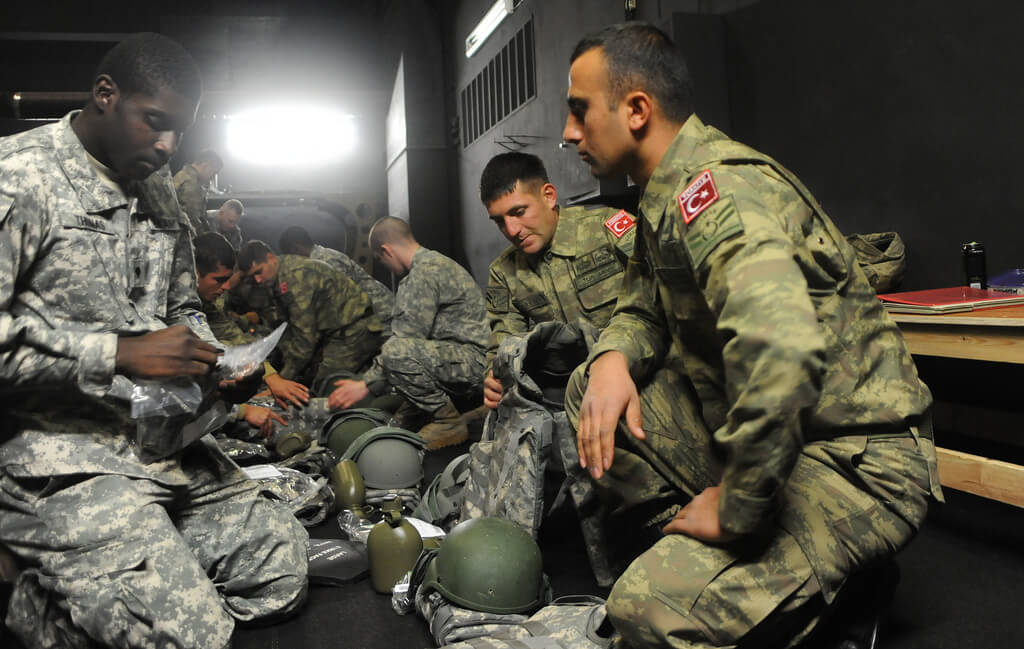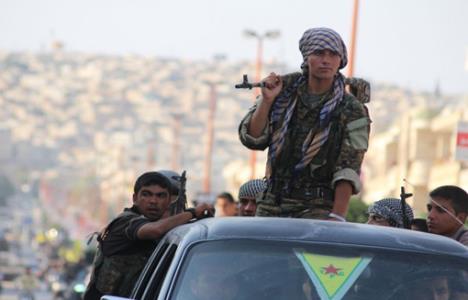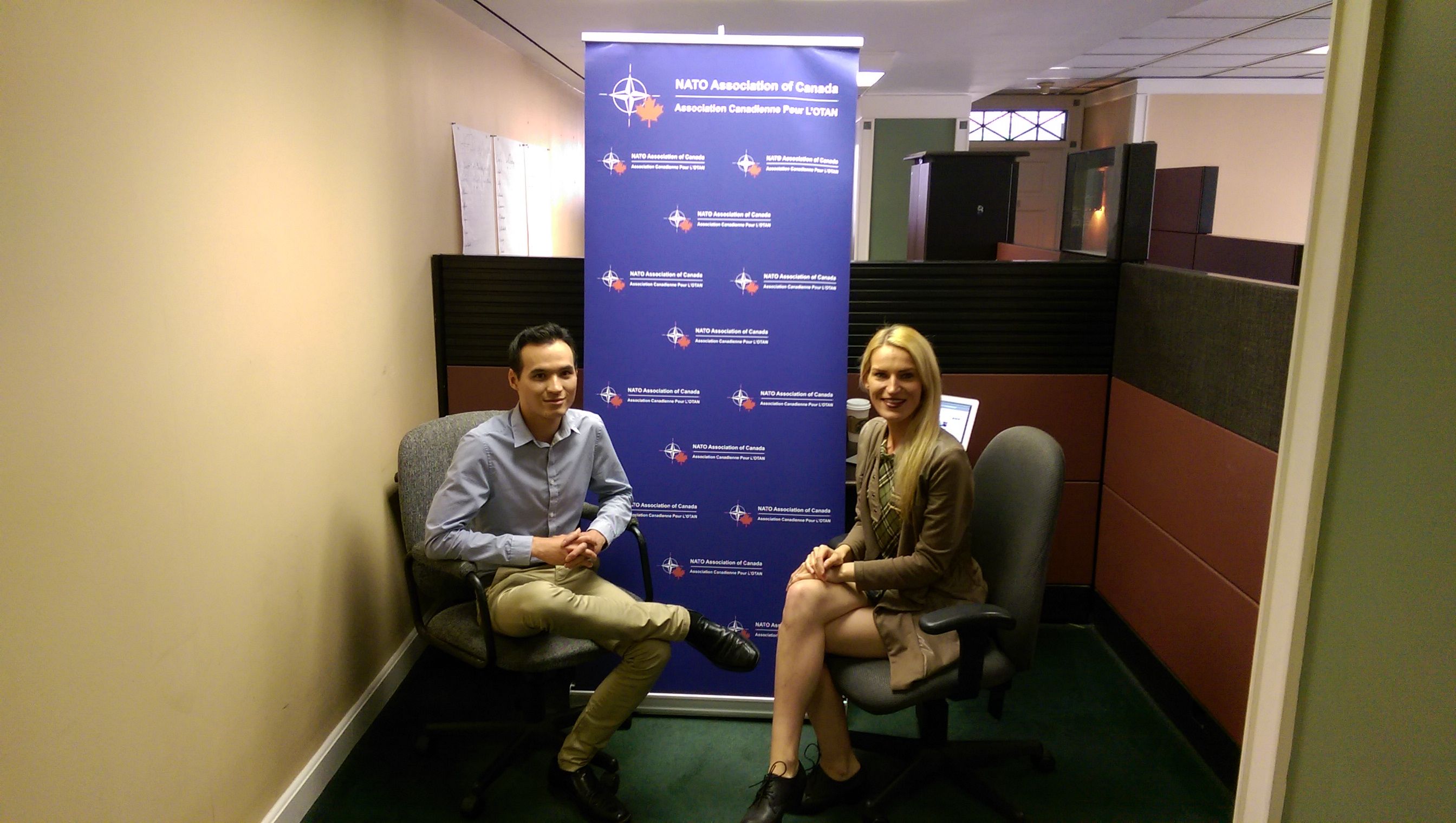Current News Cycle Summary
A NATO member since 1952, Turkey has maintained a close relationship with other member states, promoting and defending the Alliance’s values in the Euro-Atlantic area. Turkey has pursued a high degree of integration, with a High Readiness Level Force Command unit permanently on station in Istanbul, and a new land command unit on order for the city of Izmir. In 2013, six Patriot missile batteries were deployed to Turkey in response to Ankara’s request for aid as security against the worsening civil war in Syria. In co-operation against the threat posed by IS, NATO Secretary General Jens Stoltenberg confirmed in 2014 that “Turkey should know that NATO will be there if there is any spillover, any attacks on Turkey as a consequence of the violence we see in Syria.” On 28 April 2015, Ankara invoked Article 4, which resulted in ambassadors from all 28 NATO member nations meeting in Brussels to discuss Turkey’s campaign against IS and Kurdish militias in Syria, two opposing groups who have been equally targeted by Turkey’s military mandate.
This meeting came after Turkish and US officials agreed to work with Kurdish and Free Syrian Army (FSA) militants to create an “Islamic State-free zone” along its border; this included opening airbases to US and NATO warplanes. Secretary General Stoltenberg stated in a press release that “All allies expressed their strong support for Turkey, and we stand all together, united in solidarity with Turkey.” Ultimately, Turkey did not request any additional military support from NATO, content instead with the official diplomatic and moral support professed by the NATO ambassadors and leadership. While NATO urged Turkey to restrain its response against Kurdish separatist groups, its press release did say that they “strongly condemn the terrorist attacks against Turkey…terrorism poses a direct threat to the security of NATO countries and to international stability and prosperity.”
Friction does exist between the US and Turkey over the issues of the Kurds and their recent successes against the Islamic State. Cognizant of their effectiveness against IS in Syria and Iraq, US forces have been working closely with Kurdish militias since 2014. Ankara is worried that groups inside Turkey, such as the Kurdistan Worker’s Party (PKK), the Kurdish People’s Protection Units (YPG) and the Democratic Union Party (PYD), may launch a new offensive in their 30 year conflict with Turkey to create their own separate Kurdish state. Late July saw suspected PKK attacks on the Agri natural gas pipeline between Iran and Turkey, and the YPG has accusing the Turkish military of targeting them with artillery while assaulting an IS position. Turkish officials claimed that current military policy does not target Kurdish groups deliberately, and that the incidents resulted from the fluid nature of asymmetrical warfare. The official statement on the matter clarifies that “The ongoing military occupation seeks to neutralize imminent threats to Turkey’s national security and continues to target ISIS in Syria and the PKK in Iraq.”
Internally, Turkey has also arrested hundreds of suspected IS and PKK members within Turkey. According to official press releases, this is in response to a suicide bombing in the town of Suruc in June that killed a Turkish soldier, and unspecified violence against police by PKK militants within Turkey.
Analysis
Turkey’s traditional rival for power in the region has been Syria, and the 2011 Arab Spring and subsequent Syrian Civil War has been viewed by many critics as in some ways beneficial to Ankara. With Syria preoccupied with combatting various militant factions such as the PKK, IS and the FSA, and with its geopolitical influence drastically reduced, one could argue that Turkey saw a window of opportunity to clean up its own house. This is complicated by the close relationship that has developed between the US and various Kurdish groups during the 2014-present intervention against IS. Currently, Ankara remains somewhat dependent on US political and military support in the region. Unable to act as directly as it might have liked against the Kurds, Ankara has instead turned towards developing a closer relationship with the more diverse member states of NATO. The deployment of the Patriot batteries, invoking of Article 4, and the recent conference and endorsements from NATO can be seen as a platform for Turkey to voice its concerns and attempt to gather support for its continued military actions against Kurdish separatist groups. These include Kurdish groups within Turkey, and those currently fighting in countries such as Syria or Iraq. With its commitment to Turkey as a member state, NATO has a political and military stake in the region, and will find itself closely linked to Turkey’s future course of action. It may also result in future tensions between NATO’s plurality of national interests, and those of its most powerful member, the US.





